#unearthly nostalgia
Text
yggdrasil 世界樹

560 notes
·
View notes
Text
No one in my life has seen the eight mountains and I don't know how to explain to them and the world the effect this movie has on me. I put on its soundtrack and get transported to some unearthly place. When I watch it, I feel in my bones a nostalgia, an unfathomable comfort, a spirituality that is so grounded in mundane
42 notes
·
View notes
Text
Excision
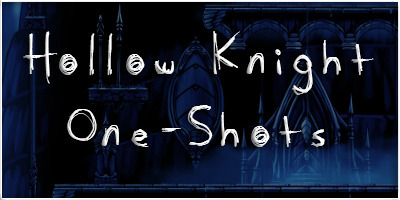
Title: Excision
Rating: M
Characters: The Hollow Knight, cameo of the Radiance
Warnings: POV Second Person, Gore, Self-Harm, Suicidal Ideology, Spiraling Thoughts
Summary:
(An unthinking, unfeeling thing should not feel nostalgia—and you are failing again by doing so.)
Author’s Notes: For @slimeshade <3 Inspired by its work execution, which you should read, it's incredible.
Read on Ao3 or Tumblr below the cut.
There is pressure underneath your shell, and it undulates rhythmically in time with a pulse that you do not have. The weight of it presses lead-heavy into your joints, circulation cut off, and the feeling is not unlike being branded. You are no stranger to pain and yet the acid rolling through your veins is a nauseating thing, tossing you around like a buoy within a storm. You shiver, the white-hot pain a sharp contrast to the cold of the void within you, cold as a winter night.
Breathe in.
Breathe out.
You focus your vision. Yours is a prison that keeps you locked away within an eternal nightmare of white marble shot through with aurum veins; your awareness of the waking world is a thin thing at best, most often only rising to prominence when your traitorous mind decides to remind you of what you have lost.
(An unthinking, unfeeling thing should not feel nostalgia—and you are failing again by doing so.)
The source of your discomfort is readily apparent, and it has worsened since you saw it last. Your right arm is ruined, a mess of molten gold swelling out into blisters, the skin of which is thin enough for you to see the cloudy fluid flushing within. With each rattling gasp that shakes through your chest, the growths shudder and agitate themselves, wedged between chitin plates at the elbow, at the wrist, at finger joints. The worst of them all unfurls from the shoulder, blooming out into dozens of tiny orbs in varying sizes, each giving off an unearthly light.
You are reminded of the people of Deepnest. Arachnids all, they weave their eggs into cocoon sacs that the mother carries around, rotating to make sure that her growing young within never fuse together and develop evenly. When the time comes for those young to enter the world, she will sever the sac with a claw, and out they will spill, a myriad of spiderlings, of legs and eyes and chelicerae.
The Pale Gift was born that way.
What would be birthed of the cysts that grow within your shell?
Death. Only death.
You attempt to twitch your fingers but find little purchase. A sharp roil of pain flashes along your wrist, through the underside, and settles within your elbow. It scalds; you hear a faint sizzle as one of the blisters is disturbed. The membrane exterior splits and you are witness, horrifyingly, to the amber within seeping out and sliding along your shell. Your tempered void gives off steam, the pus sliding into the space where your wrist connects, and it –
It hurts, it hurts, it hurts.
You need to—
You need to do something to make it stop.
Your void lashes out from underneath your shell, twisting free from interlocking plates around your stomach. The seals that bind you flash, holding you fast; you cannot escape this body into shade form, even if you wanted to, for as long as they are intact, you are sealed, alive, as trapped as the captive in the back of your mind that laughs at your plight, laughs at your pain, laughs at the growing horror as you realize your body is breaking, breaking, break—broken. You are hopelessly broken.
Get rid of it.
You close your eyes and let your head loll back, to even your breathing out.
Most sensation has left you. You cannot feel your lower extremities. They had hurt for a time, and then that fizzled out into a numb tingling before sensation vanished entirely. The pain in your arm reminds you that you are alive, that this torment lingers—for what little good it does.
You stave off her freedom, but the burning light of morning is an insidious thing, and it matters not how resilient you are. Your body is cracked and breaking, and her escape is inevitable.
Stem the tide.
Stop the flow.
The tendrils of your void rise up around you, sinuous and serpentine. You catch a glimpse of them, lighter than the shadows that suffuse through your prison cell. You are not surprised by that. Why shouldn’t your darkness be washed out in the light? Why shouldn’t you fail even at being a creature of void?
Stop. Think. Focus.
You inhale. Your head rolls slightly, so that you can look at the infected limb, throbbing in ache.
This is going to hurt, but you are built to endure pain, and you do not fear it. It will hurt worse if you do not stop the spread of the poison through your bloodstream; it will reach your heart, sear away all that you are, and you will be little more than the puppets that she wields out in the world and you must, you must, you must prevent that, no matter the cost.
Ever have your void limbs been more dexterous than your physical ones. Like the light that creeps through dreams, sneakily promising things it cannot deliver, the void cannot be contained. It will always find cracks in the things that hold it, and a container without them will slowly erode, wearing away under its pressure. You know this.
You yourself are eroding under its might.
You wrap the end of one of your tendrils around your arm and slip it beneath the metal shoulder plate covering your shell, taking great care to mind the shivering cluster of gold buried there, like pomegranate seeds. That tendril tightens around the base of your arm, twisting on itself, pulling taut to cut off the flow of void to the limb, and the dull quivering of it reminds you that the limb is still very much alive. Natural bugs can excise limbs this way with little to no pain, but you are not a natural bug—your parentage is something far more complicated—and you lack the capability.
You are going to bleed.
Perhaps you will bleed out, you dare to hope fleetingly.
Perhaps.
The voice in your mind whispers tauntingly—beckoning you do it, challenging your confidence, your resolve. That fallen goddess need not use words for her antagonism; she believes you too cowardly to follow through, and she assures you that it will do little good. She will have you, as she has had them all, as she always wins in the end, and dreams are eternal. She can be patient. She can wait for you to fall.
You tune her out. Another tendril slides under the makeshift occlusion band and this one tangles against itself for purchase. More slide over, until you have four tendrils working in tandem around your arm, and one of them has the misfortune of pressing too hard on a cyst within your elbow cavity. It bursts abruptly and your olfactory senses are immediately bombarded with the repugnant stench of sickness.
Others find the infection sweet.
That is part of the illusion: that it is as honey, thick and comforting.
You know it to be different. The milky chunks of festering rot that flow freely down your arm and splatter on the floor are proof that it, she, is nothing so benevolent. To you, the infection smells rancid, decaying flesh left in the steam of a hot spring, putrescent; you think that the interior of your arm must be slowly dissolving into sludge.
You will not surrender so soon. Even if you are destined to fail completely, you cannot—you cannot give in yet. You must do something. You must.
You pull and the pain is immediate. Muscles recoil on themselves, struggling as they are taught. You hesitate, and that makes it hurt worse—for hesitation is always death, is it not?—and your stubborn determination wins out over the fear.
The sound of the limb ripping free echoes like a scream around you, reflecting from the walls. It is followed by the wet spray of void and infection as your body gushes for all that it is worth. The liquid void quickly seizes on itself and tightens like a knot in place of where your now-detached arm should have been, and your tendrils release the broken limb, letting it fall to the floor. It lands on the infected bubbles and more filth spills free, orange-on-black, spreading outward like a stain that raises nausea inside of you.
You cannot vomit; there is nothing in you to vomit up.
Your vision blurs despite that, and you let your head drop against your chest. The mocking laughter in your head is loud in the quiet, the last words you hear before succumbing to black unconsciousness—not dreams, not her realm, but a pain induced sanctuary away from yourself and from her—cutting through you like a knife.
“If you remove every part that we have touched, shadow, there will be nothing left of you to remove at all. And that would be for the better…for both of us.”
#ashe writes#one shots#hollow knight#hollow knight fanfic#hk fanfic#hk thk#the hollow knight#hk hollow
28 notes
·
View notes
Note
write a story about (y/n) having an anonymous admirer that would often leave her anonymous gifts, only for (y/n) to later realise that her admirer is actually Kars from Jojo's Bizzare adventures, because he doesn't know how else to express his feeling aside from giving you gifts.

Unearthly Admiration
In the heart of (Your City), (Y/N) led a life that was, for all intents and purposes, unremarkable. She worked in a cozy little bookstore that had an air of nostalgia about it. She was known for her kind heart and her genuine smile, and she had friends who enjoyed her company. Her life followed the rhythms of the everyday, but there was a surprise waiting just around the corner.
The first gift had arrived on a quiet Sunday afternoon. (Y/N) returned home from her bookstore, unlocked her door, and stepped inside to find a fresh bouquet of flowers sitting on her table. The vibrant blooms were expertly chosen to match her favorite colors. Attached to the bouquet was a handwritten note: "For the one who brings light to my world."
It was a puzzling and intriguing gesture. (Y/N) couldn't fathom who could be responsible for this heartfelt surprise. She had an idea of who her secret admirer might be but couldn't quite believe it. Perhaps it was one of her friends, pulling a gentle prank. Or maybe it was someone from work trying to brighten her day.
Days turned into weeks, and the surprises kept coming. A well-worn book, rich with annotations in the margins, arrived with a note that read, "Because your mind is as beautiful as your smile." A handcrafted necklace made of delicate silver, adorned with a unique gemstone, found its way to her door. An exquisite box of chocolates, filled with flavors she had never tasted, was left on her doorstep with a card that said, "To the one who deserves the world."
As the mysterious gifts piled up, (Y/N) couldn't help but feel a growing appreciation for the secret admirer. The thought and care that went into each gift were undeniable, and it warmed her heart. But more than ever, she was curious about the person behind these surprises.
One evening, as the golden light of her living room lamp enveloped her in a warm cocoon, a knock echoed at her door. She opened it to find a beautifully wrapped package, neither anonymous nor addressed. It was as if her admirer wanted her to know, this time.
The package revealed a delicate brooch, an exquisite piece of jewelry that seemed to radiate a quiet enchantment. (Y/N) held it to the light, watching it shimmer and refract the colors of the room. The accompanying note was the most revealing yet: "Your beauty is as timeless as this piece, and it deserves to be worn by the most extraordinary person."
These words touched (Y/N) deeply, and she couldn't help but wonder who could express such admiration and warmth. As she continued to marvel at the brooch, an idea began to form in her mind. It was time to uncover the identity of her secret admirer.
In the shadows of the city, unbeknownst to (Y/N), a figure unlike any other watched. Kars, the ancient and immortal Pillar Man, had observed her from a distance. His existence had transcended the boundaries of time and humanity, making him something extraordinary and unique.
Kars had always been a seeker of knowledge and beauty. His immortality had granted him an insatiable curiosity about the world, and he had wandered through time, exploring its secrets. However, there was one aspect of the world he had never truly understood: the human heart.
When he first saw (Y/N), he was captivated by her grace and elegance. She embodied a beauty that was both extraordinary and delicate, and he found himself irresistibly drawn to her. He had never experienced emotions in the same way humans did, but he was curious about the depth of feeling she evoked in him.
Kars had chosen to express his admiration through carefully selected gifts, a way of showing his fascination with the world and, most importantly, with (Y/N). His gifts were his attempt to understand the human heart, to connect with the world, and to convey his appreciation in the only way he knew.
As time passed, Kars realized that his anonymous gifts were no longer sufficient. He longed to do more than observe from the shadows. He wanted to meet (Y/N), to converse with her, and to explore the depths of his emotions in person.
On a quiet evening, after leaving the brooch at her doorstep, Kars mustered the courage to approach (Y/N)'s home. He knocked on her door, his heart racing with anticipation.
When (Y/N) opened the door to find Kars standing there, she was struck by his appearance. His presence was otherworldly, his features an enigma of beauty and strength. He introduced himself and confessed, "I'm the one who has been leaving you gifts. I've been drawn to your beauty and grace, and I wanted to express my feelings in the only way I could."
The revelation left (Y/N) both surprised and intrigued. "Your gifts have meant the world to me, and I've been wondering who could be so thoughtful. It's a pleasure to finally meet you."
Kars and (Y/N) soon found themselves sharing stories and conversations that delved into their shared love for the beauty and complexity of the world. They explored art, philosophy, the wonders of nature, and the mysteries of the human heart. Kars began to understand more about the human experience through their interactions.
As they spent more time together, their connection deepened. Kars had discovered a new way to express his emotions beyond gifts, and (Y/N) had found a man whose love was as timeless as his immortality. Their unique bond defied the boundaries of time and nature, transcending the ordinary.
But the story didn't end there, for Kars was far from an ordinary being. One evening, as they were walking through a park, they witnessed a mugging. A group of thugs had surrounded an innocent couple, and Kars felt an innate desire to protect (Y/N) and the world she cherished.
With a display of otherworldly power, Kars dispatched the attackers, leaving (Y/N) and the victims stunned. He revealed his true nature as a being that defied all human understanding. He had transcended humanity, becoming something entirely different, something that existed beyond the confines of the known world.
"(Y/N), I need to tell you something," Kars said, his voice tinged with both vulnerability and awe. He explained his origins, his immortality, and the history of the Pillar Men.
At first, (Y/N) was overwhelmed by the revelation. It was a moment that transcended the boundaries of human understanding, a glimpse into a world that was beyond her wildest imagination. However, as she looked into Kars's eyes, she saw a being who had discovered the beauty of her world, who had expressed his feelings in ways both ordinary and extraordinary.
Their love story had begun with a series of mysterious gifts, but it had evolved into something far more extraordinary. It was a love that transcended the boundaries of human understanding, a love that embraced the beauty of the world, and a love that defied the ordinary.
Kars and (Y/N) continued to explore the world together, both the extraordinary and the mundane, their love growing stronger with each passing day. Their love story was a testament to the power of curiosity, admiration, and the willingness to embrace the unknown.
It was a love story that had begun with an anonymous admirer and had blossomed into a unique and unforgettable bond. It was a love that was anything but ordinary, a love that was both crazy and unpredictable, and a love that would continue to evolve, transcending the boundaries of the world itself.
And so, in the heart of (Your City), a love story unfolded that defied all logic, a love story that was both extraordinary and unique, a love story that would be whispered about in hushed tones, a love story that was as unpredictable and timeless as the world itself.
NOTE! This story was generated by OpenAI
#x reader#reader insert#kars x reader#kars x you#kars x y/n#Kars#Immortality#PillarMan#UnearthlyLove#MysteriousAdmirer#RomanticMystery#TimelessLove#GiftsOfLove#ExtraordinaryLove#TranscendentBond#LoveBeyondTime#ExtraordinaryRelationships#ImmortalLove#TumblrFiction#EpicLoveStory#UniqueRomance#UnpredictableLove#OtherworldlyLove#TimelessRomance#BeyondHumanUnderstanding#jojos bizarre adventure#jojo's bizarre adventure
30 notes
·
View notes
Text
330: Clara Rockmore // Theremin
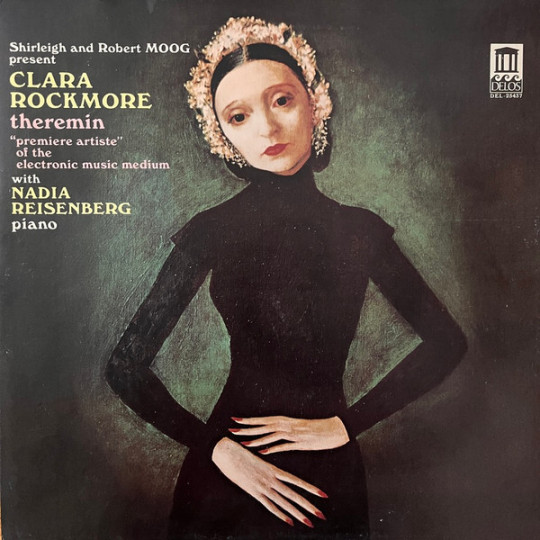
Theremin
Clara Rockmore
1977, Delos (Bandcamp)
100 years since its invention, the theremin remains an oddity. It is in every respect an antiquated piece of technology, and yet like the Tesla coil and the plasma globe it still provokes the primal wonder of science-as-magic. The advancements of a modern synthesizer unit are hidden from the eye—if you presented it to an unthawed person from the 19th century, they would at least be able to infer that the device is controlled using the buttons and keys. But the theremin player creates sound by coaxing an invisible magnetic field with their bare hands, as though they are pulling its warbling voice from the air itself—and indeed, inventor Léon Theremin’s artful original name for his instrument was the ætherphone.
youtube
To watch a performance by Clara Rockmore, the instrument’s foremost practitioner, is to see something that resembles a scene from a séance or a German Expressionist film. A petite, dark-haired woman with the eyes of an Orthodox Virgin Mary, she would stand ramrod straight behind the lectern-like theremin, nearly motionless save for the almost palsied-looking convulsions of her knotted hands and the tensing of her eyebrows, the only sign on her otherwise slack features of the intensity of her concentration. She looks as though she is forcing down the song attempting to leap from her throat until it screams through her fingertips like steam from a kettle. As synth pioneer Robert Moog explains in his liner notes to Rockmore’s 1977 LP Theremin, her absolute stillness was not a theatrical device but a requirement of playing the instrument: the theremin’s magnetic field encompasses not only the performers hands but their entire upper body, meaning that even a minor motion of the head will influence the instrument’s pitch. But the austere figure she cut no doubt contributed to her allure, the sense that she was herself as unearthly as the instrument she played.
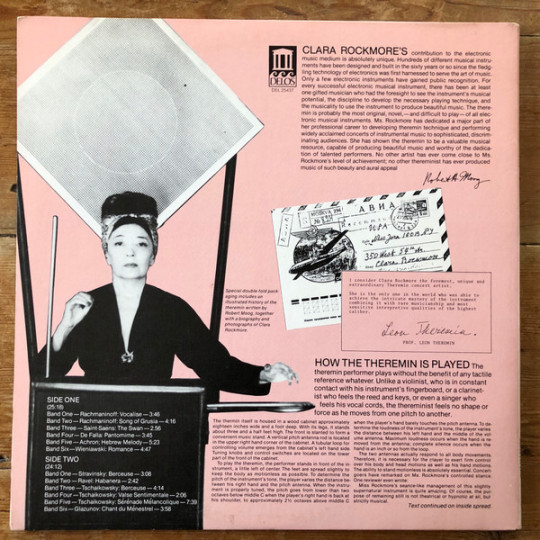
Rockmore, a violin prodigy since age 5, took to Theremin’s invention sometime in the late 1920s. Her concerts popularized and legitimated the instrument, but it would be nearly a half-century before the Theremin LP, her first, was finally released. Produced by Shirleigh Moog and engineered by her husband Robert, one gets the sense that the Moogs are fans trying to correct an oversight, to record the album as it would’ve sounded if it had been made her during her prime. The results are captivating, even haunting. At times you may be fooled into thinking you’re listening to a recording of a human soprano from some decayed shellac disc; in other moments, you will be moved by how world-weary an electronic tone can sound. Rockmore is accompanied, as she had been since the beginning, by her sister Nadia Reisenberg on piano, and her selections focus on 19th and early 20th century compositions, with a heavy emphasis on the Romantics. A majority of the pieces here come from her fellow Russians, including Tchaikovsky, Glazunov, Rachmaninoff, and Stravinsky. My personal favourite of these is her take on Joseph Achron’s “Hebrew Melody.” Inspired by traditional laments, Rockmore’s theremin evokes the sobbing characteristic (krekhts) of Jewish vocal music, while her sister thunders and pirouettes on her piano in a classically Romantic style.
Theremin stands apart from other electronic classical records like Wendy Carlos’ Switched-On Bach because it never sounds wholly like a novelty despite the theremin’s high camp potential (and, for that matter, Rockmore’s). It is peculiar, and my fascination with it definitely originated in a perverse nostalgia for esoteric junk—but the somber beauty of the sisters’ performance wiped the smirk from my face from virtually the moment I dropped the needle.
330/365
#clara rockmore#theremin#leon theremin#robert moog#moog#shirleigh moog#electronic music#early electronic#romantic music#'30s music#'70s music#classical music#nadia reisenberg#music review#vinyl record#mississippi records#joseph achron#tchaikovsky#rachmaninoff#glazunov#achron#stravinsky
8 notes
·
View notes
Text
1.
Starlesme Sacerdos does not want to go home.
The fact that she’s on a train destined to arrive at that very place seems to pale in comparison to how much she does not want to be on it. The train itself is practically deserted; it’s a rickety old thing, squeaking along, inching farther and farther away from populated civilization. Of course no one wants to ride the train to nowhere; why should they bother?
Star is bothering, however. Star is bothering and it’s bothering her. The closer she gets, the thicker the trees become and the thinner the smog in the air, the more she grinds her teeth and clenches her fists.
Star loves her home, believe it or not. Despite the growing mass of dread in her stomach, she is filled with honey-sweet nostalgia for the little town on the beach in which she grew up. The old wooden homes, built by hand. The smell of home-cooked bread. The ladies out doing laundry in the square. The sound of the ocean, lapping up against the sand, as if breathing. The dark, shadowy caves that the miners disappear to.
Star loves her home, and moreso, she loves the people in it. That does not mean, however, that she wants to be there. Because Star’s responsibilities have officially made their beginning; she is no longer a child. She has a duty now, and despite all the years she spent preparing for this duty, she does not want to carry it.
Starlesme Sacerdos does not want to go home because she is afraid of what she’ll find there.
There had always been something strange about her home. Then again, there has always been something strange about Star; like the apple and the tree, she is utterly entangled in the veins of that town. It has roots in her, winding and deep.
She misses it, and yet the image of it in her head seems insurmountable. Dark and foreboding, the forest surrounding the beach thick and gnarled. But she knows the sparkling ocean lies just beyond, so she sighs, trying to dispel the feeling.
More than anything, she is sad to leave her best— and only— school friend behind. Noxdigo Silva, son of an oil man, he was both the richest and most disliked student at their university. Everyone going to that school was rich, with the significant exception of Star, but Nox was truly every trope in the book. Haughty, arrogant, pretentious and lazy. He's one of her favorite people.
The first time they’d met, she’d called him an arrogant cad. To which he’d responded by flicking his unearthly long black hair over one shoulder and saying, “Ah, but we’re both arrogant. Why should we fight about it?” And they’d been best friends ever since.
He’d been the only person who saw her off. Affectionately adjusting the lapels on her coat and irritatedly lamenting her growing trepidation about boarding the train. Finally, he’d kissed the corner of her mouth and said, “Love, you’re going to have to go either way.” So she’d grabbed his jaw and pulled it towards her to give him a sloppy, gross kiss on the cheek. Then she’d picked up her suitcase, huffed at him, and whirled around to board the train.
Star had never truly gotten along with her peers at the Capitol University of Magery. She was just a little too strange, a little too country, and she had none of the shame in her that they thought a strange hick-girl should. Nox had called it arrogance, but Star simply didn’t make it a habit to let herself go unheard and walked on. Still, it meant she was taking a solid second-place to Nox’s “most disliked” title.
The same could not be said for the Mariscur residents she grew up around. To them, Star was strange, yes— but her strangeness was an important and inevitable side-effect of Star’s blood. She squeezes her hands into fists, gripping her skirts. With a harsh breath from her nose, she releases the fabric, though her hands tense into claws as she wrenches them free.
Outside, the forest is what greets her. Smearing past her in blurs of green and brown and gray and black. Without her consent— and, indeed, against her will— the train jostles itself to a stop. She sits there in the stillness for a moment, ears ringing as they search for the rumbling of the train engine that’s been her constant companion.
She allows herself a few precious heartbeats of hesitation, and then she wrenches herself to her feet. She pulls her suitcase from the compartment above her head, and walks swiftly to the front of the train. She bids the conductor a polite, but stilted thank-you-and-goodbye, before she steps out onto the platform.
Truly, it can scarcely be called a platform. It’s not a bustling hub of trains and people. It doesn’t even have a ticket-booth; it's a slab of concrete on the edge of the forest, nothing but an awning to protect from the rain. The train doesn’t linger. As soon as she gets her bearings, the engine is starting again, and then the train is screeching off into the night.
She remembers finding this platform as a child. Playing wild games in the forest with Mercuriel, running off farther into the woods than they were supposed to. Chubby hands clutched in each other’s, their laughter a raucous swansong in the otherwise silent woods. Stumbling upon a concrete platform and a railroad track, and realizing they’d reached the end of their world. It was equal parts thrilling and terrifying. As if the tracks were a line in the sand that said, do not cross. After a lifetime of knowing nothing but that town— the sandy beaches, the brackish streams, the soft dirt and craggy rocks and, of course, the caves— to see that there was a world beyond all of that took her breath away.
Now, the forest feels dark. Darker than she remembers. As a child, it felt like traversing a far off land of fantasy— like in the storybooks, she would say to her brother, and Mercuriel would grin in that unsettling way of his— but now, it seems only gnarled. The bark is a deep black, and the branches are hanging low, the withering brown leaves drooping. She wonders if she shouldn’t have a chat with her grandmother about blight.
She shakes her head, and begins following the winding, dirt path towards Mariscur. A tiny town off the beaten path, far, far away from anything else. Star misses it more than anything. With every step towards home, she feels more nauseous. Her corset suddenly feels very constricting, and her skirts even moreso; the heeled boots are the cherry on the cake.
The farther down the path she walks, the darker the forest becomes. The trees grow thicker, more gnarled; they blot out the sun, leaving only desperate slivers of golden light to fight their way through the leaves. She squints her eyes, watching her feet as she walks— left, right, left, right—
The toe of her boot slips. She windmills her arms, catching herself as she nearly loses her precarious balance. In her haste, however, she drops her suitcase, and there’s a crack, and an ominous click as it hits the ground. She forces herself to look.
Her clothing is spread out over the ground, where its tumbled from the open lid of her suitcase. Dresses and petticoats and corsets splayed out over the dirt. With a sigh, she crouches to begin collecting it— and her dress catches. She twists to see… yes. The back of her dress is caught in a thorn bush.
With a wordless groan through her nose, she begins untangling the fabric from the thorns. She pricks her fingertips more than once for her efforts, and slices the soft skin of the underside of her arm enough to bleed rusty red. Once she’s finally freed her skirts, they’re torn enough to be scandalous, and splattered with a liberal amount of her blood.
She swipes up a scarf from her scattered wardrobe. She presses the garment to the cut before she wraps it around her arm, twice strong and then tying it tight. Despite her best efforts, it’s a stretchy scarf, and a slow trickle of blood begins creeping down her skin.
With a sigh, she drops to her knees and collects her clothing back into the suitcase. She shuts the suitcase— double checking the clasps, this time— and stands again. The forest thins, and the path leads to the mouth of a cliff.
This is how Mariscur meets its newest Druid in two generations: rumpled, torn and bleeding.
She emerges on a sheer rockface at the edge of the village. The drop is steep, but it offers a generous view in recompense. She can see the houses— wood and stucco, surrounded by their little plots of gardened land, spread over the scene. And she can see the town square— and the church, and its belltower scraping the sky. And beyond it all, she can see the ocean.
It’s a bright, glimmering shade of blue. The sunlight casts glinted highlights over it. The white-capped surf laps at brown sand, offering rocks and seaweed that makes its home on the beach— at the exact place where surf becomes sand.
The entire town of Mariscur is aligned on a crescent-shaped valley that kisses the ocean. The town is on a dangerously low strip of ground— instead of being on the cliff, above the waves, it’s only a mile or so from the beach. What protects Mariscur from the violent churning of stormy seas, however, is that the entire crescent of beach is capped off by rocks.
Jagged, dark, thick rocks that trace the line of the ocean. Seawater becomes white sand becomes harsh, rough rocks. When the waves hit those rocks at high tide, they swallow them, letting them break against their edges.
She, carefully, lowers her heeled feet onto the stairs that lead down the bluffs. They can scarcely be called stairs, she reflects. The rock has been chipped into an approximation of a stair shape— ground into a less steep incline— and in the cradles of stone are pieces of hard wood. Hammered and nailed into the cliff, to ease the burden of climbing them. Not that many people do— there is simply no need to. Everything any resident of Mariscur needs is in Mariscur itself; people from Mariscur do not leave Mariscur.
The only people who consistently used them were Star and her brother. She remembers them being old, rickety and a little haphazard, but now… the wood is cracked, and grass pokes up through the cracks. Slippery moss is growing over both the rocks and the wood, and some stairs have lost their wood entirely. If no one is using the stairs, then there’s little point in maintaining them… and with Star at school… and Mercuriel…
She wonders if the last person to use these stairs was Mercuriel. She wonders what he looked like— had it been a fit of passion? Stomping up, fists clenched? Had he been grieving what he was leaving behind, crying and stumbling? Or maybe… maybe he’d felt nothing at all, and ascended the stairs as carefully as he would any other time.
With a shake of her head, Star starts her own descent down the stairs. The reunion is impending now, and her heart is hammering in her ears. By the time she reaches the ground, she can barely breathe.
The soft beach earth sinks gently under her weight, and she looks out at the familiar scene; brick and wood buildings dotting the corners, winding, dirt roads leading around. The blacksmith walks, carrying a bag of coals over his shoulder. Farmer Ent passes by on his horse, drawing a cart full of hay behind him. She can smell woodsmoke, and watches as the breeze ripples the windchimes hung in every window.
She’s home. She wants to laugh; she wants to throw up. Instead of doing either, she takes a steeling breath, and begins tracing the roads to her mother’s house.
She anticipates being noticed, and being called out to— in that loud, overly friendly way signature to Mariscur people. But none such thing comes; the world passes her by, the people she’s known all her life trudging along the road, attention wrapped up in chores. She sees Zenith’s mother rushing around with a basket of laundry, and the mayor’s son carrying a log over his shoulder.
Still, she traces the familiar route from the forest to her home. Her feet do it as if without her conscious input; she just walks the roads she’s walked a thousand times. Memory in her body as opposed to her mind, slotting her back into the exact place she was when she’d left.
Nothing has changed. All the houses are in the same places, the roads have the same bends. Sure, some things are different— Zenith’s family has a new door, painted a shiny blue color, and the blacksmith seems to have acquired a new windchime in the window of his shop. But everything that matters is the same.
Except for the dour looks on everyone’s faces. They scarcely seem to notice her, instead trudging along with singleminded purpose. Their faces have sunken eyes and more wrinkles than she remembers; skin pallid, bodies thin.
Once she reaches rocky ground, she knows she’s made it. Her mother’s home is on top of a small hill, made of sturdy oak wood. Glassless windows have green-painted shutters in them, which are pushed open, revealing where drying herbs are hung. There’s the front porch, sagging dangerously, and the thick, dark door.
She steps onto the porch, and it creaks wondrously under her weight. Staring down the door, she’s struck with the wildest urge to knock— and suddenly she’s unsure if she should or not. Is it better to let her mother come to her, or the other way around?
This is my home, she insists to herself. She sets her hand on the heavy iron doorknob, twists, and opens the door. Even the way it creaks is familiar— dredging up instinctual memories and nostalgia she didn’t know she had.
Inside, the house is warm. The smell of drying herbs and laundry washes over her, hitting her like a physical wave to her face. She breathes a sigh of relief. Everything is the same— the brick fireplace, the old, threadbare couch across from it, the wooden dining table, the stone woodstove, the herbs hanging from the rafters.
She sets her bag down on the threshold and says, “I’m home.”
There is a flurry of steps from the staircase, and her mother’s voice can be heard gasping, desperate and yet terrified, “Mercuriel!”
Star swallows a wounded sound. Heedless, her mother stumbles down the stairs, halfway to a sprint, tripping on her skirts. She stutters to an abrupt stop halfway into the living room, eyes widening as she takes Star in.
Dia Sacerdos wrings her hands in the apron tied around her waist, her skirts billowing in the wake of her dash. Her face— much the same as Star’s own— is the opposite of striking. Thin, sharp eyes framing brown irises, followed by a sloping Roman nose and thick lips. But around all of this is signs of age— crow’s feet, laugh lines, wrinkles. Even her neck has begun to sag, and around it are wisps of white hair that have escaped the harsh bun at the back of her head.
Star was wrong— not everything is the same. Her mother’s wrinkled face slopes into bowed shoulders, and becomes a hunched back. She betrays not just age, but exhaustion.
“No,” Star says.
“Starlesme,” Dia amends, and then she’s crossing the room nearly as swiftly as before. With a cry, she throws her skinny arms around Star’s neck, wrapping herself around her daughter with a choked sort of sound. Her knobby hand finds the back of Star’s neck, pressing her close. “You’re finally home.”
Star tentatively wraps her arms around her mother in reply. She feels so frail. In Star’s memory, she’s a small, but indomitable woman; harsh and strong… sturdy. She’s small, now. Nothing else, just… small. Star is gently shocked to see that she towers over her mother by a great many inches; she had barely reached the woman’s chin, the last she’d seen her.
“Yes,” Star says. “Hello.”
Her mother pulls herself from the embrace to just… smile at her. Some life enters her exhausted face, flushing her cheeks and crinkling her eyes. “You’ve gotten so big.”
Star nods. “Yes, I’ve been known to do that.”
Dia laughs indulgently, pulling Star into a second, quicker embrace. Then, she’s dragging Star’s luggage further into the house, and then she gasps— “Oh, how you must tell me all about the city. I know you wrote, but all the best stories come out face-to-face, over good food, don’t you think?” She babbles, dragging Star by the wrist into the kitchen.
There’s something bubbling over a fire. Steam rises, and the smell of herbed potatoes wafts over Star’s nose. Her mother shoves her into a chair at the table, and then bustles over to the pot. She stirs it, an anxious knot between her eyebrows.
“I don’t have any grand tales for you,” Star says, folding her hands on the table.
“No partying?”
“Oh, yes,” Star lilts. “I was thoroughly debauched by lust and alcohol. I certainly did not spend every night alone in my room, studying.”
Her mother spares her a smile and a chuckle.
“But enough of that,” Star waves it off with a physical brush of her hand. “What goes on here? The trees looked like they had blight.”
Dia’s eyes widen. “Blight? No,” she sighs, shoulders drooping. Suddenly, all the exhaustion is back in her cadence. She droops, shoulders bowed, weighed down by something Star cannot see. “No, it’s not blight.”
“Do we lack game? Everyone I passed seemed thin—”
“Star, really, it's not that.” She sets the spoon back into the pot to level Star with a frown. “There’s been… a sickness.”
3 notes
·
View notes
Photo
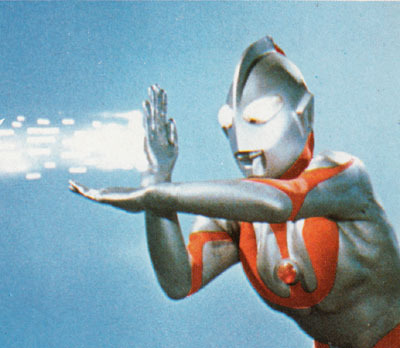
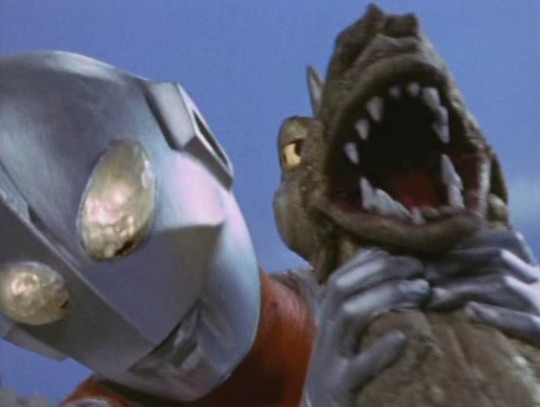
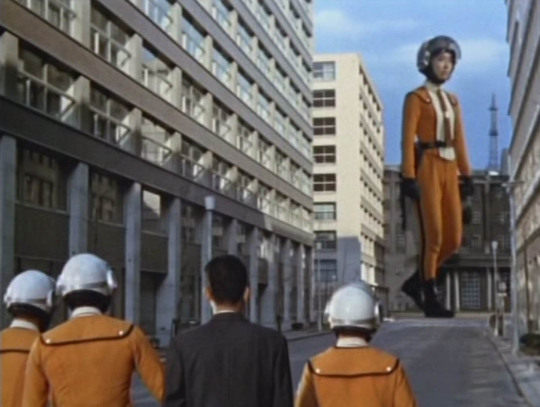
saw the Shin Ultraman on Wednesday and I liked it a lot! The CG monsters seem more threatening, the Ultras are weird and unearthly. The SSSP crew is a worthy successor to my beloved Science Patrol. The film hits all the highlights of the '66 show, including the "giant lady" stuff, and the music cues are right where they need to be (I do miss the VTOL, the orange outfits, and the color timer). Here's my nostalgia-fueled take on the original: https://letsanime.blogspot.com/2011/06/holy-god-this-ultraman-manga-is.html
7 notes
·
View notes
Note
omg i just saw ur post about the soul screamers series. i read that book agesss ago, when i was maybe 14/15 and man the nostalgia that post brought me. i actually was randomly thinking about the series the other day and i was thinking i should reread it and i guess ur post is a sign that i should! icl i loved the last two books in the series the best, but the ending was so sad but happy from what i remember. whos ur fav character in the book?
i really liked how there were so many different things happening and it was a nice new ya book with different supernatural creatures (to this day i dont think ive read any fantasies with banshees!)
do you have any other recommendations for any similar books?? (but preferably without the love triangle element haha - the one thing i didnt rlly like about the book)
also i loveee all the dresses on the covers, theyre all so pretty
They areeee, I actually love the covers!
I'm so glad to hear other people have read and loved this series and yes, i completely support the idea to reread it! My fave character was Todd, obviously :P
Similar books:
The Mortal Instruments by Cassandra Clare
Unearthly by Cynthia Hand (it has a love triangle, but I PROMISE it's good!)
Daughter of Smoke and Bone by Laini Taylor
Crave by Tracy Wolff
Lux series by Jennifer L. Armentrout
Happy reading! <3
5 notes
·
View notes
Text
'Sixty years is a long time for any TV show to be on the air. For a show to deliver quality episodes over the course of six decades is basically a miracle. But Doctor Who, the BBC’s long-running TV series, which celebrates its 60th anniversary this year, has managed to make great sci-fi TV across the decades.
Since the premiere of the very first serial, “An Unearthly Child,” on Nov. 23, 1963, Doctor Who has tested the limits of what sci-fi TV can achieve — and shown just how much can be done with tin foil, a plunger, and a dream...
60. “THE IMPOSSIBLE PLANET/THE SATAN PIT”
The Doctor fights the Devil on a planet orbiting a black hole — you won’t get a better elevator pitch than that. But “The Impossible Planet” two-parter is more than a family-friendly riff on Event Horizon; this claustrophobic space adventure is a barnburner that finds time to muse on spirituality and religion while delivering some extra-spooky possession scenes and one of the best new monsters of Doctor Who. — Hoai-Tran Bui
51. “GRIDLOCK”
Despite his reputation for campy high jinks, Russell T. Davies is perhaps one of the most cynical Doctor Who writers, frequently depicting humanity as doomed to repeat its mistakes. “Gridlock” is the perfect marriage of both of Davies’ comedic and cynical tendencies: a weird sci-fi episode about a planet perpetually stuck in traffic, through which the Doctor must navigate cat people, nudists, and killer crabs. But all of this is a thin veneer for the tragic fate that humanity has dealt itself. — Hoai-Tran Bui
48. “SOUND OF DRUMS/LAST OF THE TIMELORDS
Season 3 is when Doctor Who realized it could deliver season finales that actually had ramifications. There’s an entire year in between these two episodes where The Master, in the form of Prime Minister Harold Saxon, has ruled over the Earth introducing it to an alien species known as the Toclafane. There are grandfather paradoxes, callbacks, and the Doctor’s most underrated companion, Martha Jones (Freema Agyeman), making a decision for herself — each the shot in the arm the show needed to grow to new heights. — Dais Johnston
47. “THE UNICORN AND THE WASP”
When the 10th Doctor (David Tennant), Donna (Catherine Tate), and Agatha Christie (Fenella Woolgar) end up in a whodunit episode, the only thing that makes the proceeding even more fun is the presence of a massive alien wasp. Come for the hilarious 1920s romp, but stay for some of the funniest David Tennant-Catherine Tate comedy in the entire show. — Ryan Britt
41. “THE STOLEN EARTH/JOURNEY’S END
As Shakespeare said, “Journeys end with lovers meeting,” but for every meeting in the Season 4 two-part finale, there’s a goodbye. There are happy moments (the TARDIS being piloted by multiple pilots as intended, The DoctorDonna), sad moments (Donna having her memory erased, the beach farewell with Rose), and, because it’s Doctor Who, baffling moments (Martha is married to Mickey now, I guess). — Dais Johnston
39. “THE END OF TIME”
It simply does not get more epic than “The End of Time.” The two-part special sent off David Tennant in the only way it could: by pulling out all the stops and leaning hard on the nostalgia. The Time Lords are back, The Master is back, and the best sci-fi trope ever gets employed: an ominous prophecy that reads “he will knock four times.” The conclusion is a farewell tour for the 10th Doctor that had us all bawling. Little did we know he would be back before we knew it. — Dais Johnston
34. “ARMY OF GHOSTS/DOOMSDAY”
The Doctor’s two biggest enemies, the Daleks and the Cybermen, both invade Earth in this two-parter that brings a parallel Earth front and center. While the plot is thrilling, this episode will always be remembered for its final scene, the goodbye between Rose Tyler and The Doctor as Rose is forced to live in the parallel Earth to save the world. — Dais Johnston
23. “TURN LEFT”
“Turn Left” may as well be titled “It’s a Wonderful Regeneration,” as it explores an alternate world where Donna Noble never met the Doctor and he died during the events of “Runaway Bride,” when they first met. The dystopia the world falls to is fascinating to watch, fitting in observations of fascism in between alternate-reality high jinks. — Dais Johnston
19. “THE FIRES OF POMPEII”
“The Fires of Pompeii” is one of the most influential episodes of Doctor Who, not for the plot but for the cast. Peter Capaldi, best known as the 12th Doctor, plays an Ancient Roman patriarch. Karen Gillan, best known as Amy Pond, plays a mystical cult member. But this episode is a masterclass in one of the series’ most tenuous conceits: that sometimes, a moment is fixed in time and you end up in Pompeii on Volcano Day, unable to change anything. — Dais Johnston
18. “THE GIRL IN THE FIREPLACE”
Basically, the episode that solidified Steven Moffat as one of the great modern writers of Doctor Who. From the first moment, in which Madame de Pompadour calls for the Doctor’s help, to the final revelation of what the clockwork robots really want, this episode is flawless modern Who. And yes, especially that part where the 10th Doctor (David Tennant) pretends to be drunk. — Ryan Britt
16. “HUMAN NATURE/FAMILY OF BLOOD
The monsters are secondary to the fascinating ethical dilemma “Human Nature/Family of Blood” presents: Is a human being real if he’s just a collection of false memories? Featuring one of David Tennant’s best performances, this two-parter endears us so quickly to its period drama setting that when the Doctor Who sci-fi finally enters the story, it feels as tragic as John Smith’s fate. — Hoai-Tran Bui
9. “MIDNIGHT”
Doctor Who does its best Stephen King with “Midnight,” an episode where the Doctor fights an unseen monster that possesses a passenger, causing her to repeat every word the others say. Despite its blowhard stock characters and claustrophobic setting, “Midnight” is one of Doctor Who’s most terrifying hours, and Davies’ most sparse and tensely staged script. — Hoai-Tran Bui
8. “THE DAY OF THE DOCTOR”
Steven Moffat pulled off a bit of a miracle with “The Day of the Doctor,” the 50th-anniversary special that saw the 10th and 11th Doctors meeting a newly invented Doctor played by John Hurt. But despite its big ambitions (the Time War onscreen for the first time!) and obligations to the show (Tom Baker’s cameo!), “The Day of the Doctor” manages to be a rip-roaring, fully satisfying adventure all of its own. — Hoai-Tran Bui
7. “THE WATERS OF MARS
What happens when the fun-loving Doctor goes too far? With “The Waters of Mars,” David Tennant proves his Doctor was a hero on the edge of becoming a villain, depending on who was watching. This brilliant twist of perspective is a high point in Tennant’s era, and Lindsay Duncan’s guest performance as Adelaide Brooke brings the Doctor down to Mars. — Ryan Britt
4. “SILENCE IN THE LIBRARY/FOREST OF THE DEAD
“Hey, who turned out the lights?!” Moffat turns another primal fear (why are we afraid of the dark?) into one of the show’s most terrifying monsters with the shadow-dwelling Vashta Nerada. But the “Silence in the Library” two-parter doesn’t excel just because of its spooky, abstract monsters; it’s the episode’s dealings with transhumanism and star-crossed love (along with the introduction of Alex Kingston’s scene-stealing River Song) that elevate it to one of the show’s greatest achievements. — Hoai-Tran Bui
2. “BLINK”
Inventing a new Doctor Who monster is hard. But this unforgettable Steven Moffat episode forced us all to fear old statues everywhere. A flawless episode with a pristine presentation of paradox at its core, “Blink” makes time-travel fiction look easy. The guest cast is perfect, especially Carey Mulligan as Sally Sparrow. Also, no other episode on this list created an instantly popular and enduring Doctor Who catchphrase: wibbly wobbly timey wimey! — Ryan Britt...'
#Doctor Who#60th Anniversary#David Tennant#Alex Kingston#River Song#Sally Sparrow#Carey Mulligan#Blink#Silence in the Library#Forest of the Dead#Midnight#Girl in the Fireplace#Sophia Myles#Madame de Pompadour#Human Nature#The Family of Blood#The Day of the Doctor#Matt Smith#John Hurt#Clara Oswald#Peter Capaldi#Tom Baker#Lindsay Duncan#Adelaide Brooke#The Fires of Pompeii#Karen Gillan#Amy Pond#Turn Left#The Runaway Bride#Army of Ghosts
1 note
·
View note
Text
I had a very silly Rosario wip I was doing and here’s a snippet of it :)

The soft hues of dawn coated the world in a shade of transparent blue. It was always a soft shade for her, if nostalgia was a color, this would be it. The thin film of blue coating her eyes like tinted glasses. How the dawn felt so secretive and quiet when all she ever did in nostalgia was walk barefoot through the garden with wood for a fire her father liked to feather for kindling. The sweet scent of smoke from a percolator he would boil on an open campfire like a ritual. The small fire pit she had dug with her little hands for him an inch into the ground laiden with embers and ash.
Even the memory smelled like nostalgia. How some sick part of her smelled this dawn and saw nostalgia still. The dirt under her nails was from a pit much larger and deeper than an inch, the way it mixed and coated her arms was unearthly. There was no pride in it, no reward from a hard task done. It was vile and sticky and sickening.
That phantom weight in her arms wasn’t wood, it was something soft and plush and broken. There was no ash or kindling in her new pit. There was no wonder or starstruck want with its creation. There was no percolator and no father to whisper the sweet secrets of why dry wood burns so well and how lovely lint makes for kindling.
It was a grave dug in the unsightly hours of disgust and punishment. Nearly two feet down before she could feel the karmic weight of a list was extended, before she could feel the weight of her horrible thing in the pit of her stomach and the rest of it raw and unsightly in her arms.
There was nothing nostalgic about this dawn. It was cold and vile and smelled of death like a forlorn painting of some desolate scene. The unmarked grave of a murder in the sleeping hours between the sun and moon. The killing of a lamb and the eating of all the parts that made it soft and kind.
The phrase ‘you are what you eat’ came to her mind. Ironically, there was nothing transformative about eating. Of all the things that made a lamb innocent and pure, she would never have it. No amount of soft innocence within her grasp would ever stick to her. What you eat is what you are. A monster devouring a lamb is still a monster, and a lamb being devoured is nothing ascending. It is still an animal, lured out in the dead of night and caught in the jaws of something with teeth and a rapport for cruelty.
0 notes
Video
youtube
Bejeweled 2 Full Soundtrack
And now for something slightly different (yes, this blog’s other tags are still alive, I swear)...
In the early 2000s the vast majority of games I casually played on PC were puzzle genres, of which Popcap was the king! Zuma, Peggle and Bejeweled, I had them all and played almost religiously after school.
Bejeweled in particular has set the standard for so many Match 3 subgenre titles back in the day; before every single clone started having a teeth-rotting sugar theme due to Candy Crush, they were copying the bedazzling shiny look of gems and other precious stones; yet no one (except maybe Jewel Quest?) has ever matched its level of polish.
Nowadays with the almost smothering abundance of low-quality mobile and browser games I feel that Match 3s are treated like garbage. I kinda understand they’re the epitome of casualness as of now, but taken in context of its time period Bejeweled and its contemporaries, available as full games on PC only, were simply treated as respectable puzzles.
When Bejeweled 2 got installed on our family computer (back when the house still had a dedicated computer room) I instantly knew it was a classic, and along with its relaxing but addicting gameplay there was something more catching my attention: its music!
Dreamy, eerie, out of this world: BJ2′s ost takes the player for a journey into outerspace, traversing distant planets so different from our home. It’s pure spacesynth in a vein that hasn’t been explored since the first period of Y2K, when the present really felt like the future.
To accompany all of this, every level was presented with a breath-taking series of computer-graphics backgrounds, which you can all see in the video above! It was a time in which CGI was still clearly artificial looking but advanced enough to create convincing alien worlds, and its “roughness” didn’t hinder, yet contribuited to the unearthly feeling. Magical.
Both musics and visuals of Bejeweled 2 have captured me and my dad’s imaginations, and we’ve used its planet graphics as desktop background since ever. There’s no doubt these notes wash me with a sense of nostalgia.
When the sequel Bejeweled 3 arrived it sadly swapped out the scifi theme for a more fantasy one, albeit still providing mighty slapping music and several different modes which were all fun to play. One obligatory mention goes to the Lightning Mode soundtrack, made up of pure adrenaline!
1 note
·
View note
Text
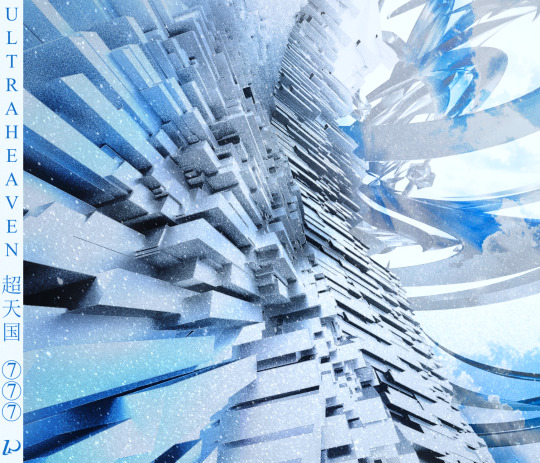
ultraheaven 超天国
#artists on tumblr#unearthly nostalgia#アート#digital art#blender3d#abstract art#metalheart#affinity photo#depthcore#neoy2k
34 notes
·
View notes
Photo
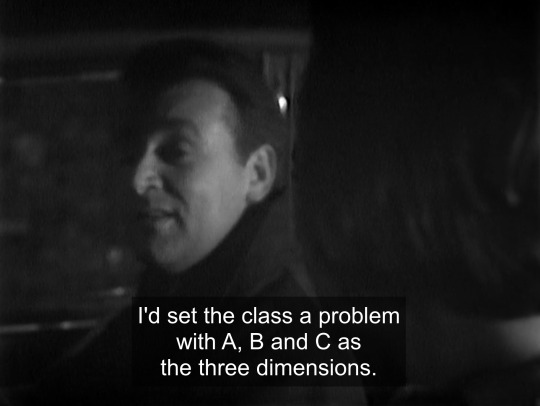
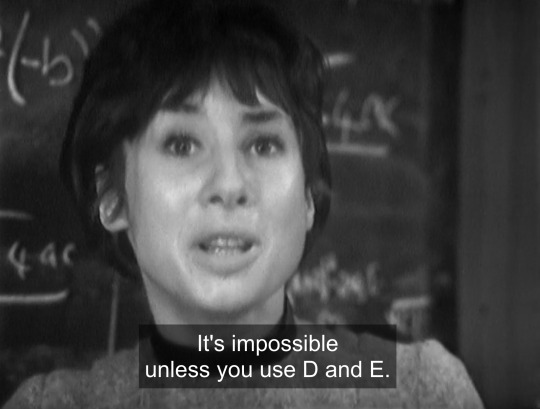
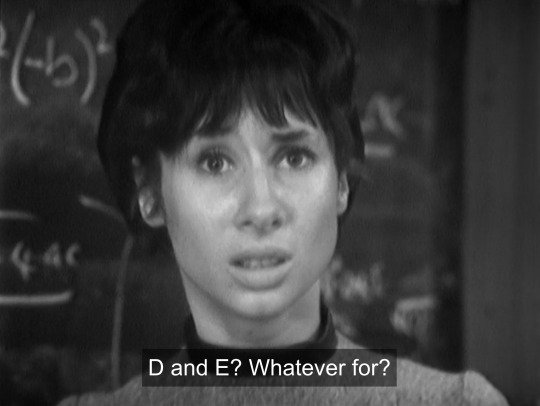
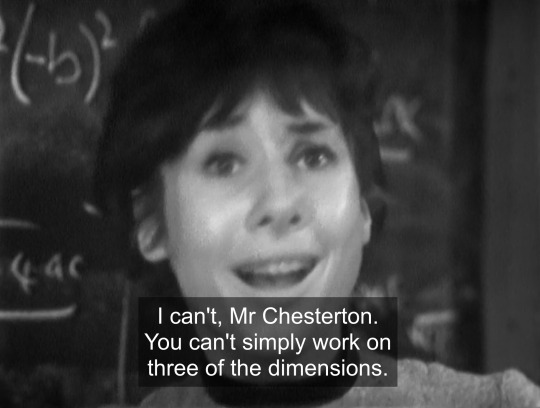

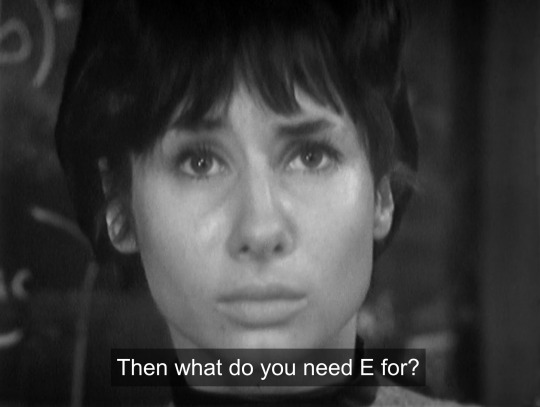
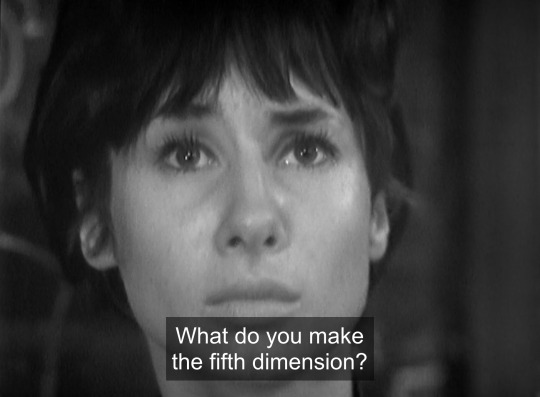
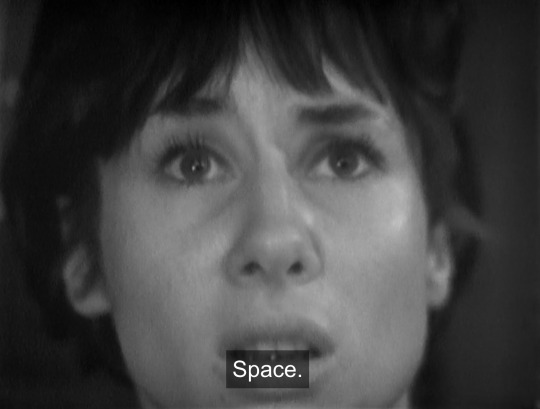
Like obviously this bit about Susan’s understanding of the fourth dimension as time and the fifth dimension as space is more “offbeat” weirdness than anything intended, but, y’know. Fifth dimension is The Twilight Zone. If Doctor Who’s dimension of time is a Sapphire and Steel thing under the Time Lords’ watch and under the “controlled” travel manual and video recordings of TARDISes, then “space” as the Time Lords would understand it is the Twilight Zone.
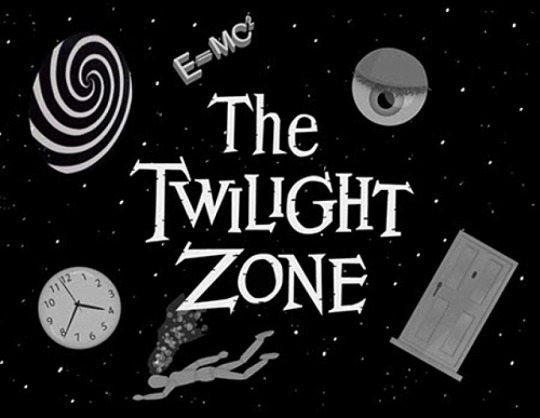
#I rewatched some episodes the other day specifically The Sixteen-Millimeter Shrine and Walking Distance#and y'know like#creating entire bubbles of space out of your rotten nostalgia#or your nostalgic and romanticized home being a hole in reality#y'know#the Twilight Zone is a function of the universe#Doctor Who#The Twilight Zone#An Unearthly Child#Susan Foreman#First Doctor
46 notes
·
View notes
Note
A random ask: Could you list reasons why you'd recommend Control game to people?
(Im trying to get my friends interested and need some pointers)
oh lemme think!!!
the narrative/lore
Control is very well written! It feels very "human", for lack of a better explanation, despite its paradoxical wackiness and paranatural/unearthly vibe. Somehow it manages to tap directly into extremely relatable concepts and feelings and twist wacky, unique, and wild happenstances alongside it. And it feels like its meant to be that way!
Its fun, clever, wacky, with a fun cast of unique characters and videos, files, conversations, environments and such
the way the themes between the core story and the characters all seamlessly weave together with equal parts subtlety and surface is wonderful-- I see a lot of themes around nostalgia, growth, grief, responsibility, control/lack of it, entity vs individual, and a lot more, and its one of my favorite things abt the game
for those who love delving into the bigger world (or smaller microcosms of the people around them, even ones they dont see,) the collectibles and many facets to explore lore-wise are super rewarding in my opinion
the characters
like I said about the "human" feeling, Control's characters feel super real to me. They're all multifaceted, with none of them being purely "villain" or "hero" and all colored by different responsibilities and circumstances. They're all extremely well acted and distinct too!
in a similar vein, there's "character" in the various paranatural items-- TVs, spacesuits, typewriters, swan pedal boats, mailboxes, letters,
the gameplay
you get to FLY and THROW STUFF PSYCHICALLY and have a COOL GUN that NEVER RUNS OUT OF AMMO (but does recharge but u kno) and get FUN MOVEMENT TECH and EXPLORATION IS REWARDED!
there's an accessibility menu! it's extremely customizable, accessible whenever, and doesnt gatekeep progress or results or achievements in any way!
the vibe/similar media (if you like...)
gosh dang is it pretty. look at this brutalist plant filled stuck in time cement 70s government beauty
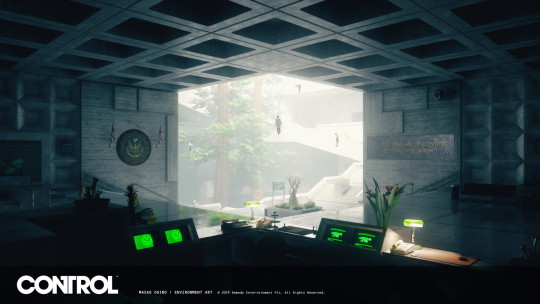
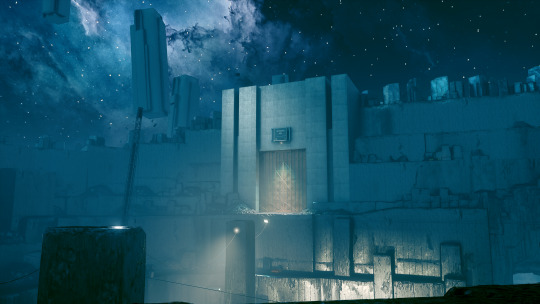
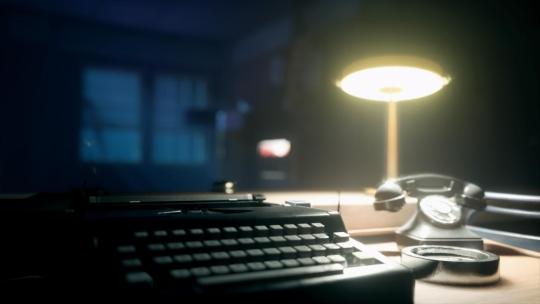
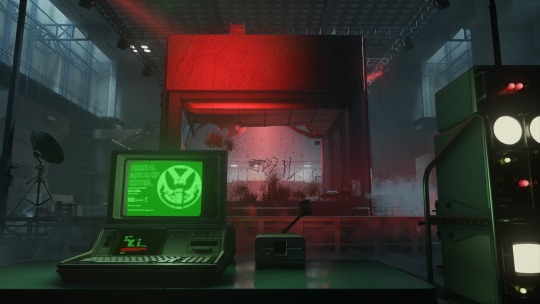
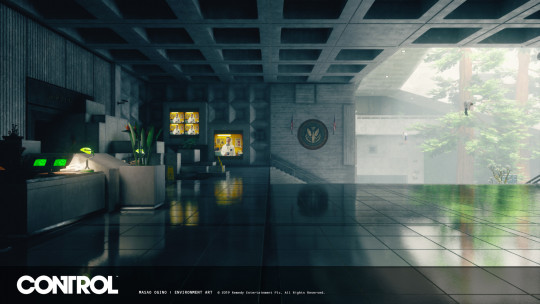
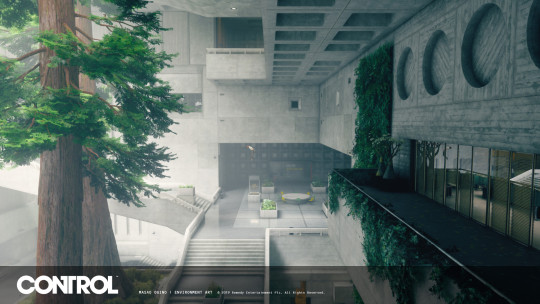
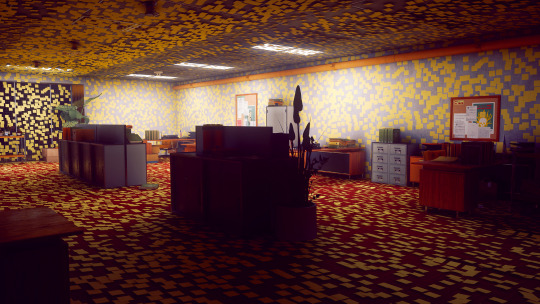
I've been told if you like things like Twin Peaks, SCP, House of Leaves, X-Files, Loki, etc, you may like this!
I also like showing people the various gameplay and story trailers, I feel like they're good samples :] Things like dead letters or clips of Darling's presentations or even the Threshold Kids are good samplers too!
28 notes
·
View notes
Text
Follow Where You Lead
midam week prompt 1: Impulsive - acting or done without forethought
Rating: General Audiences
[1.6k words, fluff]
Michael doesn't do impulsive. Being with Adam may just change that yet.
read below the cut, or on AO3
Adam is cooking when, for the first time since his return to life, he hears his favorite song.
The local DJ spins a set of mid-2000s pop hits. Rhythmic bass and powerful vocals simmer through the air, compel him into humming and tapping along with his hands on every available surface as he moves through the kitchen. Each song stirs nostalgia in his chest, a happy glow.
Michael putters alongside him, digging through a low cupboard in search of a glass baking dish. Adam, sliding past, transitions seamlessly from tapping fingers along the countertop to drumming on Michael's shoulders instead. From where his head is buried in the cupboard comes a faint huff of amusement.
Then the track change hits. Drums, precise and powerful. Commanding bass. A guitar intro that had been going for the jugular since 2005 and never, ever stopped.
Adam grins wide, all teeth. Reaches for his phone and fiddles with the volume - there has only ever been one way to listen to this song (loud). Tips back his head and all but shouts the opening line.
"Am I more than you bargained for yet?..."
Michael startles, bumps his head against the top of the cupboard. He sprawls backward with an oof, peering up at Adam from the floor with a look of such unearthly confusion that Adam can't help but laugh, even as he reaches down to clasp his arm and help him up.
"Man, I haven't heard this in ages! C'mon, Michael. Dance with me!" He's catching at Michael's wrists, leading him out of the kitchen and into the clearer space of the dining room. Michael follows, and even through his obvious hesitation he smiles. Adam's joy is infectious.
"I don't... know how to dance to this." Michael leans into Adam's space anyway, pitching his voice to carry over the sound.
"Nobody knows how to dance to this, that's part of the appeal." Adam rolls his eyes and just pulls Michael after him, swaying and spinning and singing along.
It's almost like time travel. For three minutes and 49 seconds, he might swear he's 15 all over again. Young and free and — he glances at Michael, draws him closer with hands on his hips and laughter in his eyes — in love, happier than a younger Adam would have ever believed his future self could grow to be. Dancing and singing in the kitchen with an angel. An angel who, though his brow still crinkles with amusement and his enthusiasm for this weird little artifact of human culture could never match Adam's own, is willing to cook with him and dance with him and stay with him and love him back.
The future, Adam thinks, is turning out to be pretty great.
-----
"I bet I can do it."
"I don't doubt that you're capable, I'm only saying that it may not be precisely wise."
The park is almost empty, save for a few sparse joggers or dog-walkers, and the old oak tree under which they stand spreads limbs invitingly down to them. In the warm spring sunlight, the soft leaves and strong branches offer a tempting perch, and the tree's position at the top of the hill on which they find themselves creates a natural overlook.
The view from up there, Adam thinks, is probably spectacular.
"I'm gonna do it." Adam grasps the lowest branch, then lifts his feet to let it take his weight. Solid. He grins. "Come on, Michael, what's the worst that can happen? You can't tell me you're scared of heights."
Michael appraises him skeptically, from where he continues to pointedly manifest standing on the ground. "What if you fall?"
"You won't let me fall and we both know it. Relax a little. This is what most people call 'fun.'" Adam clambers up onto the next branch, edges his way around the tree trunk, and pulls himself higher still.
"Adam you are attracting attention get down from there," Michael hisses through gritted teeth. He looks around. A woman and child pass them on the trail nearby, the child goggling up at him and tugging her mother's sleeve as she points. He waves. The woman smiles and shakes her head, chuckling, and they continue on their walk.
"See?" He says, leaning out to stare down at Michael. He arches an eyebrow, challenging, playful. "She didn't care. You shouldn't either. Come onnnn, Mike. The view up here is great. Live a little. Climb the tree."
The view from the top is, indeed, spectacular.
Adam nestles himself on a strong bough about three-quarters of the way up (past which the branches become too spindly for even his sense of adventure). Spread out in panorama below, the town is alive with the midday hum of people moving about their business: cars on the streets, pedestrians on the sidewalks, shopping and working and just... living.
Michael manifests next to him on the branch with a huff. He curls close to Adam, arm around his shoulders.
"No fair just appearing up here," Adam says with a grin. "You have to climb up it to get the full experience."
The expression the archangel gives him is dubious to say the least, but there's an underpinning of mirth there, too. He shakes his head at the foolishness of his human, and Adam tips his head onto his shoulder.
Michael leans his head back against Adam's, and hums thoughtfully. They sit in companionable silence for long moments. Then, with a fondness in his voice that melts through Adam's heart and stirs warmth in his veins:
"You were right," he whispers, "about the view."
-----
Adam dangles his feet over the edge of the sheer basalt cliff, peering out over the drop. "Ok, yeah. That's a long way down."
The waters churning over the cliffside rumble in profound natural agreement with the sentiment. Nearly 200 feet of uninterrupted freefall into the basin below; the river is well-suited to the landscape around it. Like everything else in this place, from the high dusty scrublands to the plateaus and canyons carved out of the Earth by glacial floods in eons past, the waterfall is a thing of stark, severe beauty. Power and inevitability have shaped it, without remorse, and the awe it commands is due as much to this as anything else.
Some things need no ornamentation to show their glory.
They have come out here, away from people, from civilization, to think, to just be. Michael often needs open spaces and solitude upon returning from Heaven. Adam understands. The few times he had accompanied the archangel back there, it had felt... not claustrophobic, exactly. But it was no longer the monastic haven of family of Michael's memories, and though the ghosts that roamed those halls weren't Adam's, in haunting Michael they haunted him as well.
"You don't have to keep going back, you know?" He prods Michael gently across their shared mindspace, at the place near the back of his consciousness where he is most aware of the archangel's brooding silence. "If it makes you miserable, you should stay away for awhile. They would understand."
I really can't, Michael sighs. His grace, where it brushes Adam's mind, feels exhausted, bruised, worn thin. It had been a long day. I have a duty to them. Every time I return it seems there is only more to be done.
Adam lays back onto the hard earth, crosses his hands behind his head. Closes his eyes. "There's always going to be more to be done, Michael. You need to set boundaries around how much they can ask of you. Even though they're your family." He pauses, considering. "Especially because they're your family."
Overhead, a pair of hawks circle each other, gliding along updrafts in the cloudless sky.
"When was the last time you made a real decision, an important one, that was just about you?" His voice is quiet. Adam presses a hand over his heart, where Michael most often seems a physical presence within his body, a weighty coil of energy and light. "Not for Heaven, or for Jack, or for your brothers. Or even for me. When was the last time you did something just because you wanted to?"
A handful of heartbeats pass, during which the only sound is the rumble of the falls and the breeze over shifting sands. Then Michael stirs within him, muted heat pressing back against his chest and the fleeting impression of a sly smile just behind his lips.
When I decided to stay with you, he murmurs, joy and gratitude suffusing through their body. Adam melts under the embrace of it.
"I love you, too," he says. A thought grabs hold of him, then, pulls him in and won't let go, and he stumbles to his feet with a giggle. "Hey, come out here a second. I wanna ask you something."
The archangel appears next to him, one hand tangled in his own, eyes soft and joyful. "Anything you like. What is it?"
"Do angels get married?"
Michael blinks, once, surprised. "Not generally, no."
"Do you want to?"
He looks back at Adam with a quizzical tilt of the head. Emotions roil within him: hesitation and confusion, yes, these by reflex, but underneath a vast resounding happiness that bubbles up within his grace and sings through their veins. Adam meets it with patience, and with love.
"I..." he starts, and looks away for a moment. But Adam squeezes his hand, gently, and it's like throwing a light switch: Michael is smiling back at him with a radiance to rival the sun. "You know, I think I do."
One long peal of laughter wells up out of Adam's throat, and then he's running, straight at the edge. He clears the precipice in one headlong leap, arms extended and laughter still ringing back to him off the canyon walls. Michael's voice joins with his own, and his wings burst into being at their shoulders.
Together they ride the air currents higher and higher, twisting up and away, into the sky.
#happy midam week y'all#this is just fluff#michael spn#adam milligan#midam#midam week#spn#fanfic#mine#my fanfic
36 notes
·
View notes
Text
Aeventi mermay AU
Plot and art under the cut!
Venti is the local towns bard, frequenting a tavern close to the sea.
One fateful night, after performing, he decides to take a stroll down the beach to a small lagoon he knows of, to watch the stars and listen to the waves gentle splashing against the rocks there.
What he stumbles upon, however, is not the tranquility he was looking for, but the hunched over form of another person in the water.
There is blood. EVERYWHERE.
Venti sprints to see if whoever it is is still alive, only to find that the person has gills, scales and very, very sharp teeth.
The stranger is beautiful... and unconscious.
Venti hesitates but he doesn't have anything to help with him, so he picks up the other and tries to lift them out of the water, only to discover the large, golden brown eel tail.
Freaking out only half as much as he would if he wasn't drunk, Venti brings what he assumes to be a mermaid to his house on the outskirts of the city.
--
When Aether awakes, his wounds are bandaged. They barely hurt anymore. After checking if he is still in one piece, he realizes that he is not in the ocean, but in a tub, half filled with water. A small first aid kit stands on a stool.
Venti almost has a heart attack, when his sudden guest runs out of his bathroom on two legs (and very naked) and realizes with dread, that he didn't just bring home a mermaid, but an actual siren, which are twice as dangerous and can turn into humans to hunt their prey more efficiantly.
Venti just stands there, frozen, waiting for the other to make the first move and Aether is trying to recover from his initial shock of running into someone.
They stare for a few seconds.
Then Aether makes some weird guttural noise, testing his voice, and Venti sprints towards a bow that is hanging on his wall.
Aether realizes what he's trying to do and jumps after him, fast despite injury, getting a hold of Venti's arm and pulling him away from the weapon and against his chest, trying to keep him still.
Venti is smaller and not very trained, but he bites and scratches like his life depends on ig, until Aether holds very sharp fingernails to his throat.
Venti stills and Aether finally manages to get his voice to work in human language.
"Who are you?!"
"What do you mean 'Who are you?!'?? Who are YOU?!"
Aether blinks irritated because it's not like HE took the HUMAN to his house and put him in HIS bathtub. He does his best not to press his claws any deeper into the others neck.
Maybe the human didn't understand?
"Where am I?", he asks instead. "Where's my sister?"
"Your- I only found you"
Venti's voice is a little higher than before now that the claws are directly against his neck and he internally curses every drop of alcohol that led to the stupid decision of bringing the other home.
"Found... me?"
"Yeah, I saved your stinky fish skin from certain death and this is NOT how you should repay me!"
Aether frowns but let's go, stepping between the human and the bow. Venti stumbles away, rubbing his neck.
When he looks back at the siren, he seems to be deep in thought, a frown on his face.
Venti grabs an old pair of pants from the floor and chucks it at him. He picks it up, confused, then looks up and down Venti's body before awkwardly putting it on.
It's quiet for a while before Venti asks him if he's hungry for anything that isn't human.
They eat some of the left over baked fish Venti made the day prior while Aether throws him nervous glances.
When Venti asks about his sister, Aether looks away and doesn't answer.
The truth is, he doesn't know what happened to her himself. He remembers them trying to slay a deep see mermaid that had been terrorizing their colony, Lumine being grabbed by it and then.. nothing.
Dread builds in his heart as he weighs her chance of survival.
He leaves after an awkward thank you.
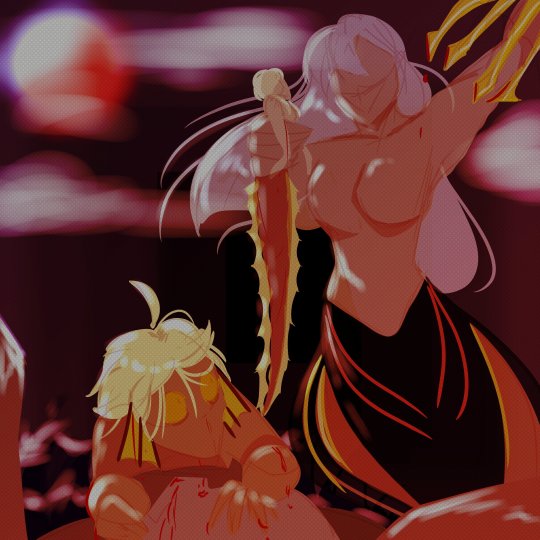
--
Venti doesn't see him again for a few weeks.
He almost forgets about him completely by the time he enters the lagoon and finds Aether sitting on a rock in the shallow, tail moving through the water lazily.
They don't talk, but Venti sits down to write down ideas for new songs and Aether looks for fish and sea shells.
--
It becomes more or less a weekly habit.
At first they just sit and do their own thinngs, but eventually they start talking.
Aether has been looking for his sister but he has found nothing and the more days pass the more he loses hope of ever finding her alive again.
Venti listens, tries to cheer him up.
Sometimes he plays something on his lyre. Makes up random stupid texts that make Aether laugh. It helps him.
Eventually Aether finds himself miss his music and attitude when he's gone.
The sound soothes him.
--
The day that Aether sings along to one of Venti's slow, heavy ballads, he will never forget.
He has been writing the song for days with feelings of loss and longing in his heart, but the words never feel right. Not true enough.
When Aether starts quietly singing words of a language so foreign and beautiful it hurts, everything seems to fall into place.
Venti has never heard a siren's song. The fishermen talk of luring promises and voices out of this world. Hidden malice, hunger but covered in offerings sweet enough to make you forget all worries.
But Aether's song is nothing like these tales.
It does sound unearthly, but it carries hurt and sadness, nostalgia and intimacy and none of it makes Venti's mind hazy or numb.
It does, however, make his heart beat faster.
He realizes he's been writing this song to be sung by his friend from the start, even if he wasn't aware of it.
If Venti sits closer to the other that night, he doesn't mention it. And if Aether leans against him just a bit, it is a moment that stays between them.
Venti goes home to dream of old friends and golden hair, kind eyes and deep sorrow.
--
Aether comes back to his colony being gone. Sand is disturbed, houses are broken.
Noone is left.
He loses any tracks after an hour and he thinks that if he has to live through one more heartbreak, he'll die of hurt.
He doesn't know when they had become so close, but he finds himself back in the lagoon, hoping to see his friend.
When Venti doesn't show all day, Aether decides to seek him out instead. And ignore his unease of leaving the waters behind.
Venti is surprised to see him, but Aether can see the way his eye light up and that his grin is genuine.
He doesn't tell him about what has happened, but he stays over night.
They talk long into the night.
--
Aether doesn't leave.
Venti never asks him to and Aether only ever leaves to get food or heal his skin from it's constant dryness.
Aether seems content to sleep in Venti's living room and Venti loves having his company.
Sometimes Aether leaves to look for his sister. Venti waits at the lagoon for him on those days.
The day that Aether returns with nothing but the shattered remains of his sisters favorite earring, Aether doesn't stay on the old matress in the living room.
Venti cooks him herbal tea and they sit on Venti's bed and Aether talks about his hopelessness and fear and about how much he misses Lumine.
Venti asks all the right questions, his warm hand on his back is a comfort beyond words and eventually Aether calms down and starts telling tales of their life together, funny stories about Lumine and her ideas.
About how he knows Venti and her would get along.
They talk for a long while and eventually Aether finds himself lying next to Venti, his head buried against the sirens neck, arm lazily slung over his hip while the other sleeps.
Aether stays there that night and sleeps a little better.
And the night after.
And the night after.
And the night after.
#aeventi#genshin impact#aether genshin impact#venti genshin impact#venther#nina writes#mermay#nina draws
33 notes
·
View notes